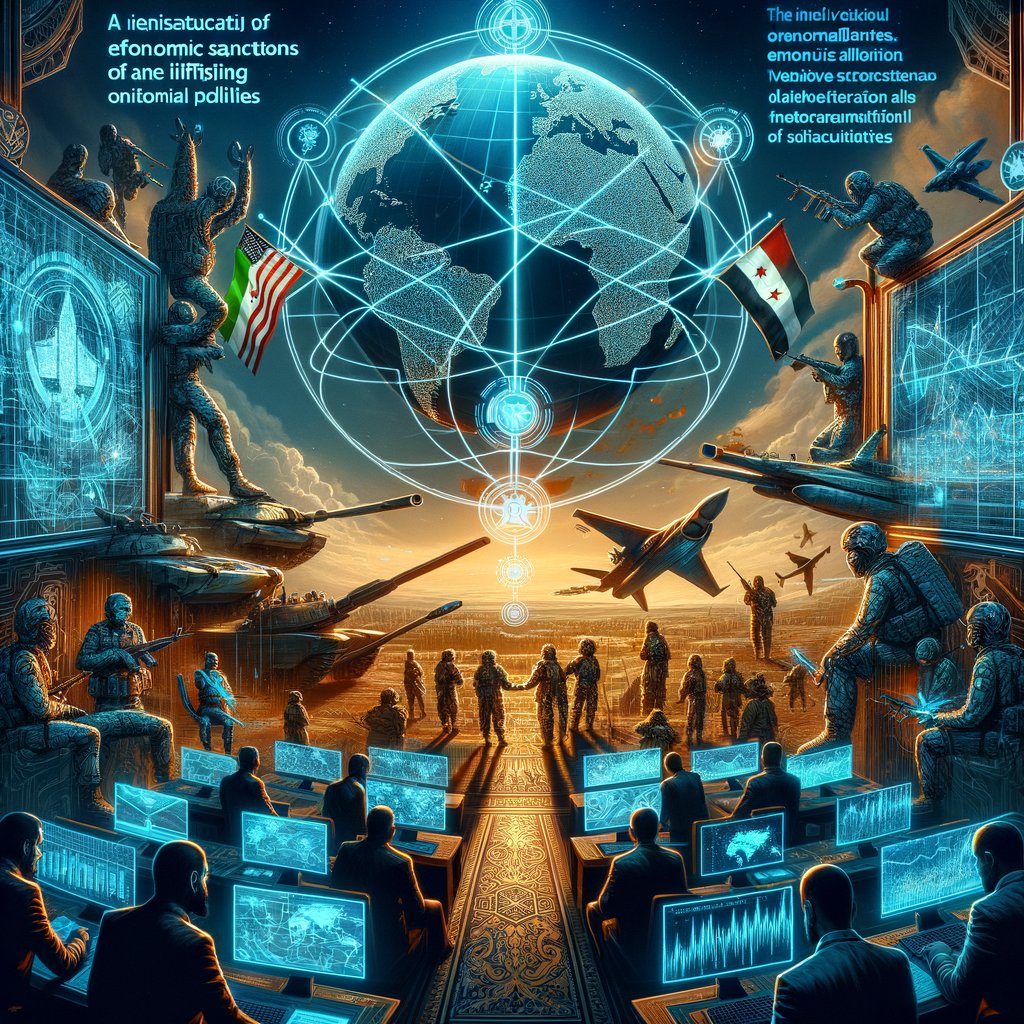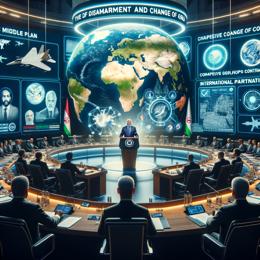Image created by AI
Strategic Shifts: US and UAE's Conditional Offer to Lift Sanctions on Assad in Exchange for Severing Ties with Iran
In recent high-stakes diplomatic engagements, the United States and the United Arab Emirates have proposed a significant shift in their policy towards Syrian President Bashar al-Assad. This change involves potentially lifting economic sanctions if Assad decisively distances himself from Iran and ends military aid to Lebanon’s Hezbollah. This development comes as the current US sanctions known as the Caesar Act are set to potentially expire on December 20, 2023, unless they are renewed by US legislators.
These discussions are not isolated but part of a larger regional strategy influenced by Israel's ongoing campaign against Iran’s influence across the Middle East, including actions in Lebanon, Gaza, and directly in Syria. Recently, the heightened relevance of these discussions was underscored by anti-Assad rebels advancing into Aleppo, a move seen as a testament to potential vulnerabilities within Assad’s current alliances, notably with Iran.
The engagement between the UAE and US has been multifaceted, focusing on diplomatic isolation of Iran and economic reconstruction of Syria, with the Emirates playing a pivotal role. During 2022, Assad was hosted in UAE, marking a significant thaw in relations previously cooled due to Assad’s alliance with Iran during the Syrian Civil War. Besides, the recent visits and discussions among high-level officials, including a notable engagement between UAE President Sheikh Mohamed bin Zayed Al Nahyan and Assad, underline an opportunity seen by both the UAE and US to recalibrate geopolitical alignments in Syria.
However, this strategic pivot is fraught with complexities. Notably, Iran remains a staunch ally of Assad, having supported his regime during the Syrian civil war from as early as 2012. A senior regional diplomat revealed that Tehran had been informed of Arab nations’ maneuvers to disconnect Syria from Iran, accompanied by promises of sanction relief from Washington. This puts Assad in a precarious position, balancing between long-term allies and enticing offers from the UAE and the US.
Also noteworthy is the role of Hezbollah and its recent activities. Having pulled back fighters to prioritize conflicts with Israel in Lebanon, the group's reduced presence in Syria was seen as one of the reasons for the recent rebel advancements in Aleppo. This pullback and the ongoing Israeli strikes against Iranian and Hezbollah targets in Syria underscore a volatile and shifting battlefield, which further complicates Assad’s choices.
In response to the evolving dynamics, the UAE, alongside Saudi Arabia, reportedly offered financial incentives to encourage Assad's pivot away from Iran. These discussions have encompassed not only political support but also substantial financial backing for Syria’s reconstruction, potentially signaling a lucrative post-conflict engagement for Assad should he realign his alliances.
The strategic discourse also extends to the broader Arab community. With the Arab League reinstating Syria's membership and the increased diplomatic engagements by regional powerhouses like Saudi Arabia, Assad is being woven back into the Arab fold, provided he recalibrates his geopolitical stance, particularly concerning Iran.
As the deadline for the renewal of the Caesar sanctions approaches, the international community, especially those invested in Middle East politics, will be keenly watching Assad's next moves. Will he maintain his alliance with Iran, or will he pivot towards the Arab bloc led by the UAE and backed by the US? The answer could reshape not just Syria’s future but also the broader geopolitical landscape of the Middle East.










